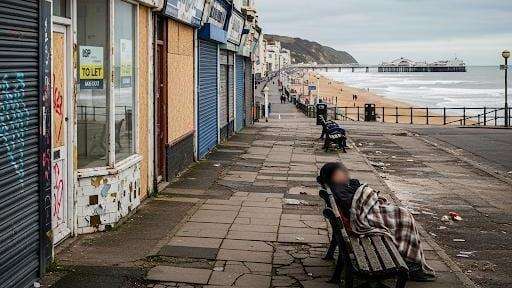The UK is set to abolish a 200-year-old law on vagrancy, a move hailed by some as a compassionate step, but feared by others as a catalyst for a national homelessness crisis.
As a new era of homelessness policy begins, questions are being raised about whether cities like Bournemouth are prepared for the consequences.
A new law set to replace the 1824 Vagrancy Act has ignited a heated debate across the UK. The controversial legislation, which criminalised rough sleeping and begging, will be replaced by new "targeted measures" that the government says will give police the powers they need to maintain public safety. While leading homelessness charities like Crisis have celebrated the change, local outreach groups and activists warn it could lead to a massive increase in visible homelessness, turning picturesque towns into scenes reminiscent of San Francisco's notorious "Skid Row."
Bournemouth's Homelessness Challenge
At the heart of this national discussion is the seaside town of Bournemouth, which in 2022 had the highest number of homeless individuals outside of London. While more recent 2024 government statistics show a "marked improvement," placing it fifth outside of London behind Somerset, Bristol, Brighton, and Leeds, local outreach groups argue that the problem is far from over.
Andrew Talbot, head of the outreach group We Are Humans, believes the government's decriminalisation of rough sleeping is a deliberate act that will enable police to ignore the growing problem. "They are going to put more people on the streets. This is planned," he told YouTuber Joe Fish, who visited the town to report on the issue.
Talbot's group provides free meals to approximately 800 people weekly, with demand "going absolutely through the roof" due to the spiralling cost of living. He notes a disturbing shift in the demographics of the homeless, with "schoolteachers and pensioners" now seeking assistance alongside veterans, a group historically overrepresented in homelessness statistics.
A Looming Crisis or a New Beginning?
The new legislation marks the end of an era, but its impact is still a subject of intense debate. Crisis CEO Matt Downie welcomed the new legislation, stating, "For 200 years the Vagrancy Act has meant that people who are homeless are treated as criminals and second-class citizens."
He believes the change will prevent vulnerable individuals from being "pushed into the shadows" and allow charities to provide better support without the fear of legal repercussions. Bournemouth council has also downplayed the impact of the law's abolition, stating it had "no bearing on our work" and affirming its commitment to a "compassionate and collaborative approach" to homelessness.
However, the on-the-ground reality in Bournemouth remains a cause for concern. The town's high street is plagued by empty retail spaces, creating an economic feedback loop that reduces jobs and increases poverty. Joe Fish reported witnessing a drug overdose within minutes of arriving in the town last year, and many residents like Stuart, a 59-year-old man who sleeps in a local park, endure harsh conditions.
The conflicting viewpoints highlight the deep divide in how the UK is addressing its homelessness problem. While some see the law's abolition as a long-overdue step towards a more humane and effective system, others fear that without proper support and infrastructure, it will simply unleash a more visible and unmanaged crisis on the streets of Britain's towns and cities.








.svg)


